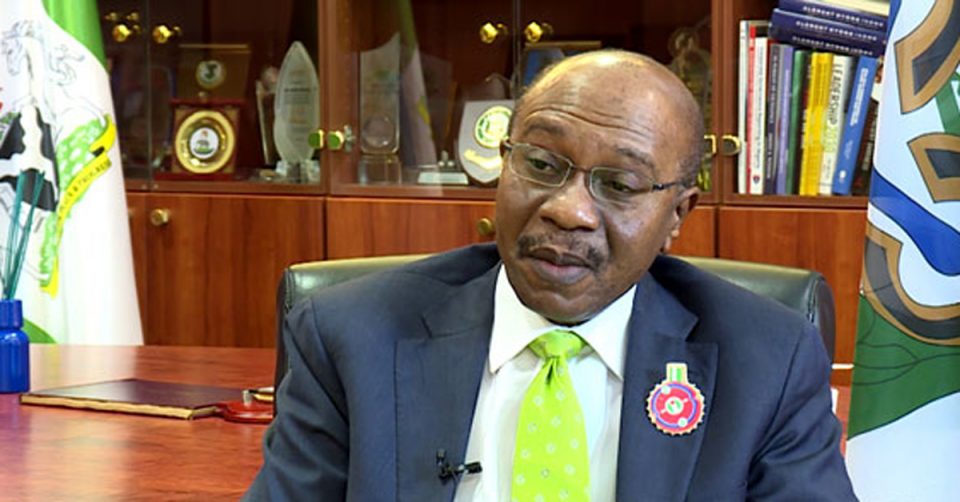CONTRARY to the seeming optimism expressed by the Governor of the Central Bank of Nigeria, Godwin Emefiele, there is nothing on the ground to show that the country would “discontinue heavy dependence on crude oil to guarantee public revenue and foreign exchange” anytime soon. Nigeria relies on oil to generate over 65 per cent of its revenue and about 90 per cent of its foreign exchange. Tellingly, the actions of the political leadership do not indicate such a single-minded proclivity towards ending the age-long debilitating dependence on oil. Having been satiated by the taste of petrodollars for too long, the oft-mouthed proposition to diversify the economy has not yielded positive change.
Emefiele had said at the 2020 CBN Governor’s Golf Cup in Abuja recently that the country should harness its other economic potential to enhance its growth in order to facilitate an “early exit of the economy from the current recession.” This may sound reassuring, but it is nothing other than hot air. It has been said repeatedly with nothing to show for it other than a resultant disarticulated economy that has turned the country into the world capital of poverty, according to the Brookings Institution, displacing India in the process.
Both the crash in oil prices and the economic fallout from the coronavirus have combined to pose an existential threat to the Nigerian economy. George Ike and Henry Okoduha say in “Crude oil dependence, deindustrialisation and economic growth in Nigeria” that recent and past empirical research has shown that resource rich countries develop slower than resource poor countries and that resource dependence has a negative relationship with economic growth. For them, one of the mechanisms of transmission is through the crowding out of the manufacturing and agricultural sectors through the process of direct and indirect deindustrialisation.
The country is stuck with dependence on oil because the economic architecture is a unitary configuration with no meaningful economic initiatives taking place at the sub-national level other than being payment posts. The anachronistic 1955 Railway Act for instance still governs operations in the railway sub-sector. A long overdue repeal of the Act will jumpstart huge economic revival, promote competition and allow Nigeria to be run as a real federal state. Besides, while the automotive industry in South Africa is the third largest sector in that economy, employing a significant number of people and accounting for about 7.6 per cent of the country’s GDP, the same cannot be said of Nigeria’s. Instead, data from the National Bureau of Statistics indicated that Nigeria spent N1.08 trillion to import used cars (popularly called Tokunbo) and motorcycles between October 2018 and September 2019. The cost of importing used cars and motorcycles into the country rose from N252.3 billion in the fourth quarter 2018 to N301.8 billion in Q3 2019. A leadership committed to the diversification of its economy from oil should have faithfully implemented the Nigerian National Automotive Policy Act of 1993 formulated to “ensure the survival, growth and development of the automotive industry using local human and material resources.”
Since independence, successive administrations have harped on the need for economic diversification. What workable and discernible action plan has been developed and followed to steer the country out of the economic woods occasioned by oil dependence? There is no sense of urgency and redemptive pressure on the part of the political leadership to recalibrate the country’s economic template away from oil dependence as envisaged by Emefiele.
Examples of such spectacular inaction abound. A country desirous of economic diversification should be disturbed by what is currently happening to its maritime industry, especially the chaos at the ports. Recently, the Maritime Workers Union of Nigeria threatened to embark on an indefinite strike because of what it called the “harrowing experience” being suffered by its members in accessing the ports. It is claimed that at present, no fewer than 40 ships calling at the Tin Can Island Port are stranded at anchorage due to the lack of space to discharge new cargoes at terminals. The major factor is that cargo evacuation from the port has been hampered by multiple toll points mounted by security operatives, including personnel of the Nigerian Ports Authority, Nigeria Police, Nigerian Navy, Nigerian Army and the just-disbanded Presidential Task Team on Apapa.
The National Vice-President, Association of Nigerian Licensed Customs Agents, Kayode Farinto, lamented that clearing agents lose an average of N300 million weekly to illegal collections by the NPA security officials, the police and members of the PTT, which he called a “money-making machine.” He alleged that to enter the port, truckers pay as high as N280,000 to security operatives on the road. This is clearly unacceptable. The disbandment of the team is therefore justified.
Figures obtained from the NBS indicated that in the 1980s, the contribution of non-oil revenue to economic growth was 40.02 per cent. In 1995, it declined to 35.27 per cent after a decade, later increasing to 45.09 per cent. Furthermore, from 2008 to 2014, non-oil revenue contribution increased from 45.09 per cent to 48.01 per cent.
On the other hand, a study of Nigeria’s revenue profile indicates the dominance of oil as the major source of export earnings in the economy. The CBN says oil accounts for over 90 per cent of the country’s total export earnings, while the non-oil sector accounts for less than 10 per cent. Although many factors may have combined in explaining this general adverse development, the country’s trade policy mainly skewed towards oil has frequently been seen as a major responsible factor.
No country of note relies on a single source of revenue to meet its budgetary and developmental needs. As Matthew Page, a former United States Department official, said, “Nigeria’s governmental structures, predicated on dividing up the national cake of petroleum revenues, are now unsustainable.” That is the truth





Ihedioha: Supreme Court judgment, another sad commentary –PDP